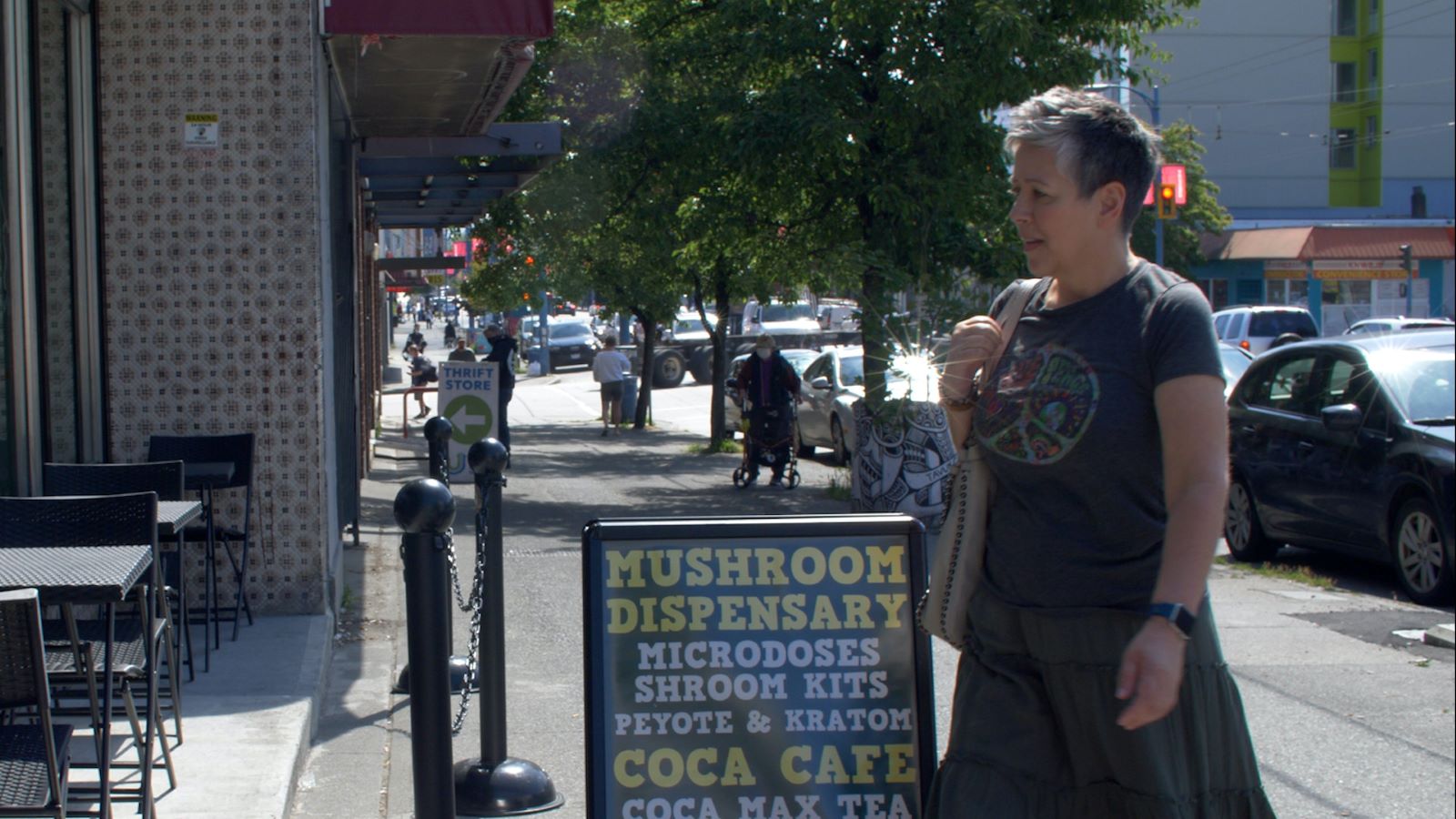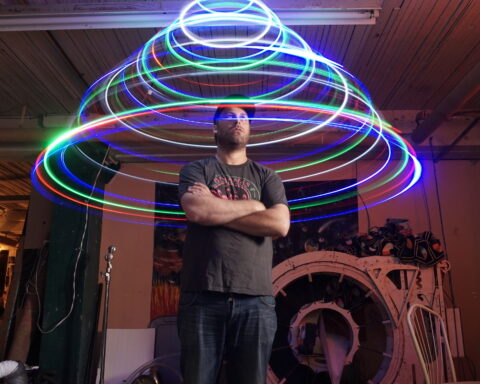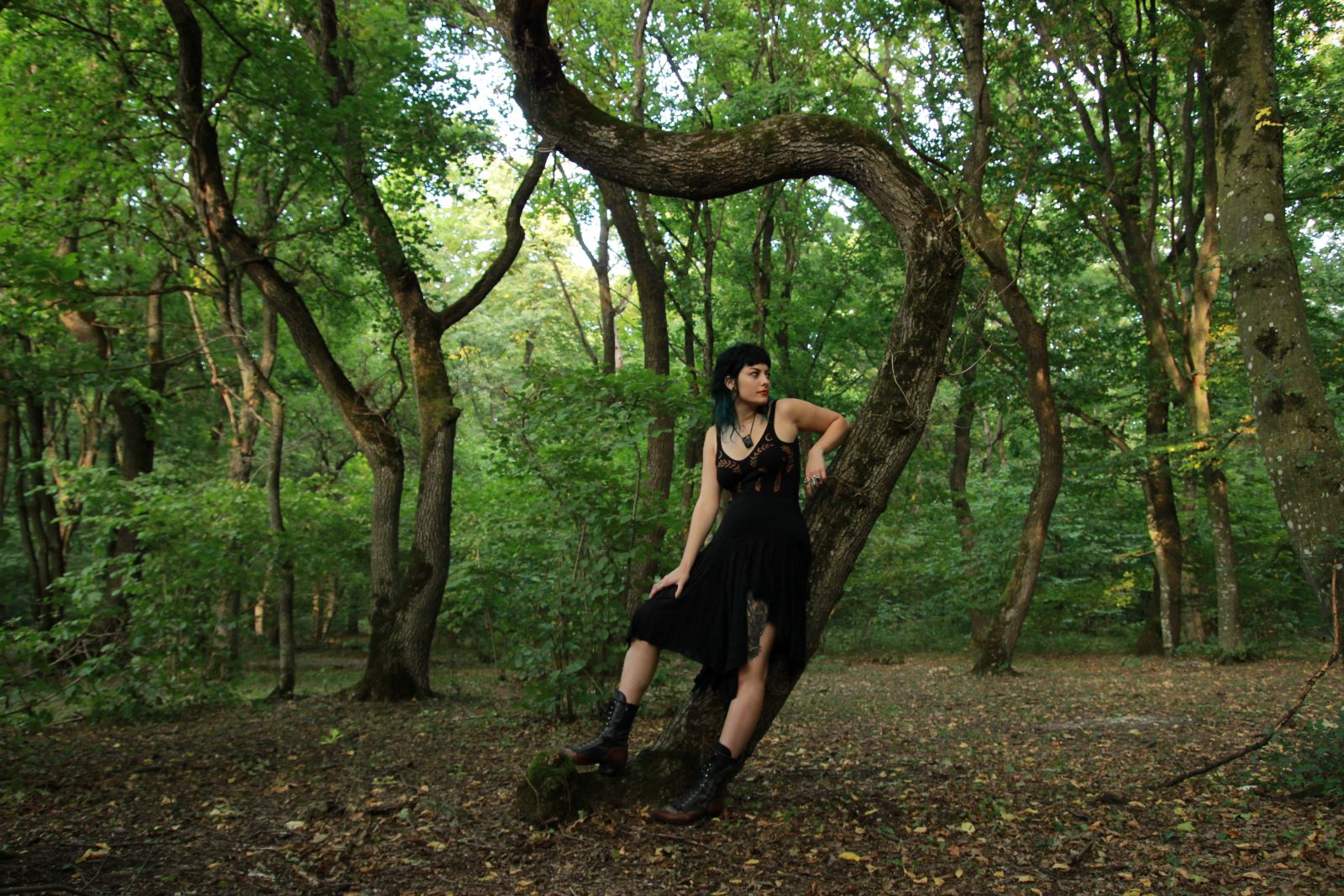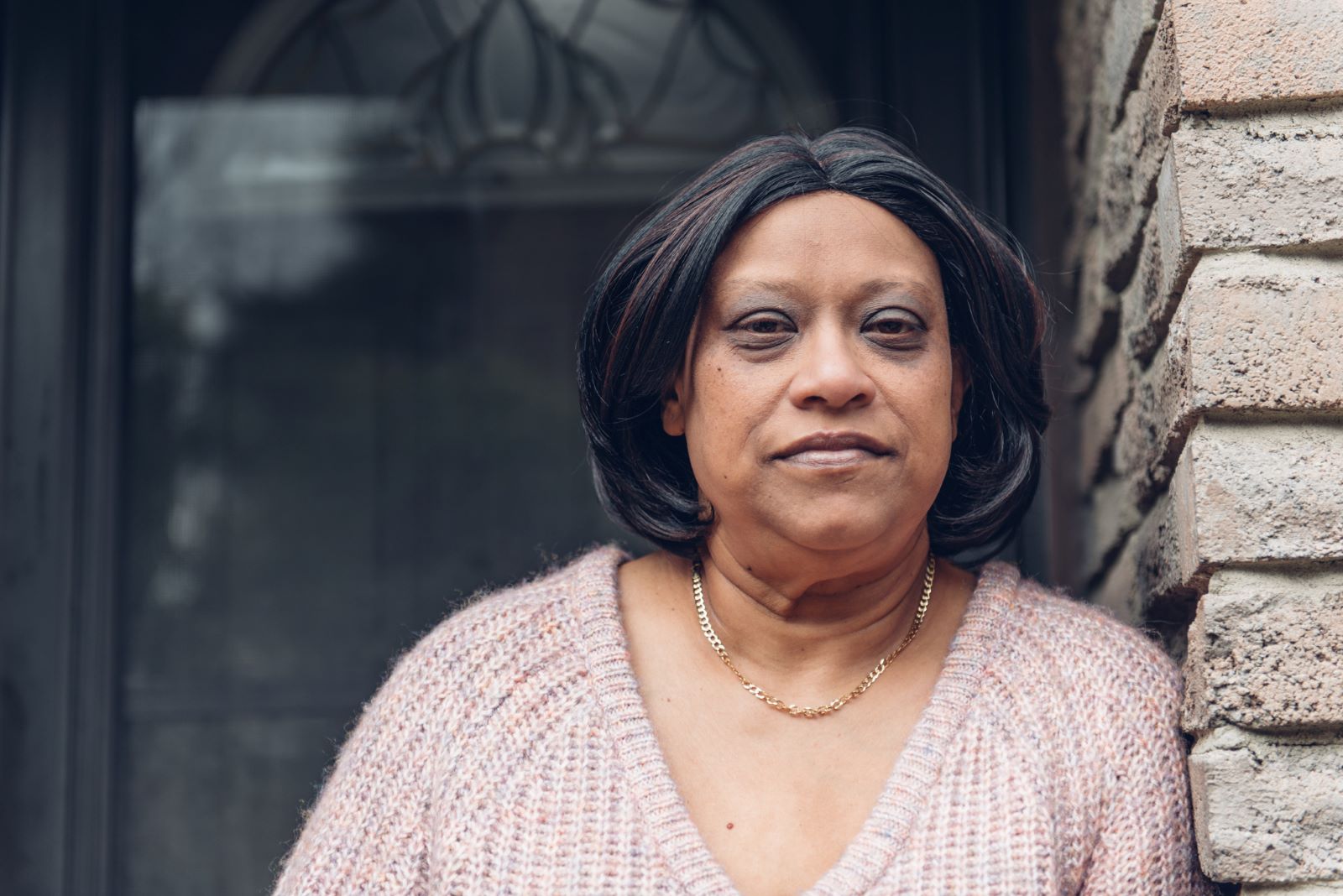Dosed: The Trip of a Lifetime
(Canada, 88 min.)
Dir. Nicholas Meyers and Tyler Chandler
In the last couple of decades, there has been a surge in popular interest, scientific research and financial speculation around the use of psychedelic substances as tools for personal growth and therapy, a movement documented and celebrated in Michael Pollan’s 2018 best-seller, How to Change Your Mind. Aside from the popular enthusiasm for getting high that unites generations of hippies, slackers, and Silicon Valley brain-hackers, the movement has significant implications for mental health care: Under lab conditions, high doses of these substances can predictably induce mystical states, ease depression, anxiety, and the fear of death for terminally ill patients.
Dosed: The Trip of a Lifetime, by filmmakers Nicholas Meyers and Tyler Chandler, follows one of those patients, Laurie Brooks, from Abbotsford, British Columbia, a happily married mother of four adult children. In 2018, in her early fifties, she was diagnosed with late-stage cancer. She followed it up with radiation, chemotherapy, and surgery, but after the cancer recurred in 2020, at the suggestion of a therapist friend, she petitioned the government to became one of four Canadians to gain a legal exception for the use of psilocybin (magic mushrooms) for end-of-life therapy.
Brooks agreed to share her journey with the filmmakers, Nicholas Meyers and Tyler Chandler, who in a key decision, made her the host of film. While contending with her ongoing treatment, Brooks travels about, visiting practitioners in the field, popping into a legal mushroom dispensary in Vancouver, and exploring a lab in a secret location that synthesizes psychedelics for therapeutic use. She’s an endearingly down-to-earth, positive, and open-minded character (you might cast Olivia Colman to play her in a fictional version) who acknowledges her own improbable casting: “If someone would have told me I’d become an advocate for magic mushrooms, I’d have told them they were nuts. That’s the stupidest thing I’ve ever heard. And yet, here I am,” she says.
We empathize with her and feel discomfort at the invasion of privacy, like when the camera follows her into an examining room and a doctor delivers the bad news of her cancer’s recurrence. We feel her vulnerability as she lies upon a sofa, wearing headphones and a blindfold, with a nurse holding her hand as she goes on her psilocybin trip. Later, as she describes her trip in an emotional voice-over, the filmmakers attempt to illustrate her experiences: A kaleidoscope of colourful shapes, a dark forest, and grandmother’s hand evoke a religious sense that helps Brooks end her fear of death.
Although the film opens with a disclaimer that indicates that it is intended only to inform and entertain, filmmakers Meyers and Chandler are upfront about their advocacy for psychedelic therapy. They previously explored the use of therapeutic psychedelics in their 2019 film, Dosed: It’s Not Magic, It’s Medicine, following a Vancouver woman in her thirties who uses then non-legal hallucinogen therapy to treat addiction.
To bolster their case here, they employ a chorus of like-minded talking heads. These include mycologist guru and author Paul Stamets, who rails against repressive drug laws and contends that magic mushrooms make you more empathetic and smarter. There’s Gareth Moxey, interviewed amid clouds of pot smoke, who runs a private facility in Vancouver that uses hallucinogens to treat mental health issues: Late in the film, he recommends a cannabis oil treatment that puts Brooks to sleep for 16 hours a day. There’s also maverick celebrity doctor Gabor Maté, who informs Brooks that cancer shouldn’t be considered a disease you have, but “a process that happens inside you and…a manifestation of your life from early childhood onwards,” which may be reversed if you change your life.
Although Brooks accepts this advice, Maté’s disease-as-psychological trauma conjecture feels of dubious relevance. Brooks describes herself as an inveterate people pleaser, but there’s no evidence here that she represses any unusual trauma. What she does have is a genetic disposition for cancer.
Intended as a crowd-pleasing, warm hug of a film, Dosed keeps things sunny, avoiding tears, interpersonal conflicts or evidence of physical debilitation. At times, it resembles an infomercial, including slow-mo on montages of the loving Brooks family and friends and plenty of images of luscious British Columbia nature. Viewers, who have seen too many claims for simple cures that big medicine doesn’t want you to know about might be forgiven at least a micro-dose of skepticism at some of the film’s enthusiastic claims. However, one can appreciate the appeal of the message that it may be possible to go gently, even happily, into that good night.
Dosed: The Trip of a Lifetime is now playing in select cinemas.













